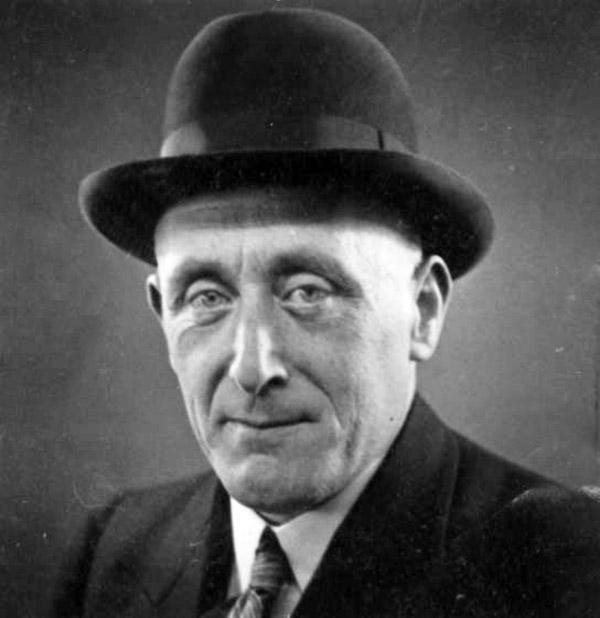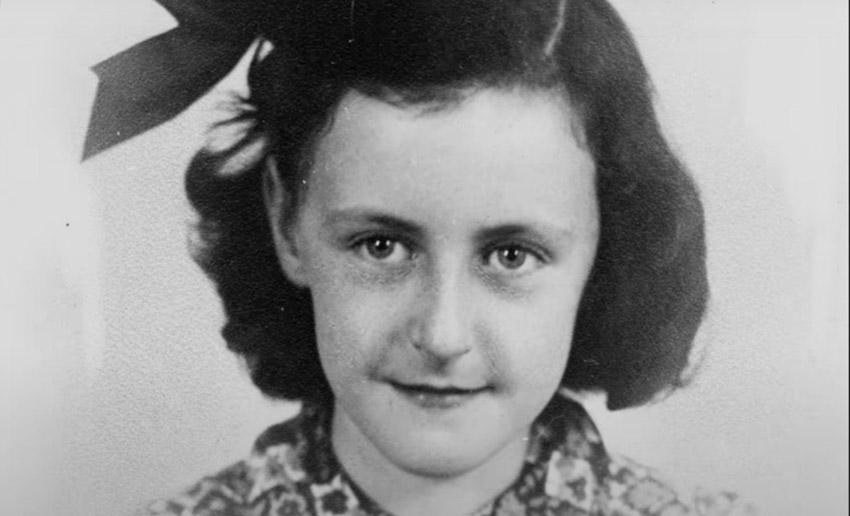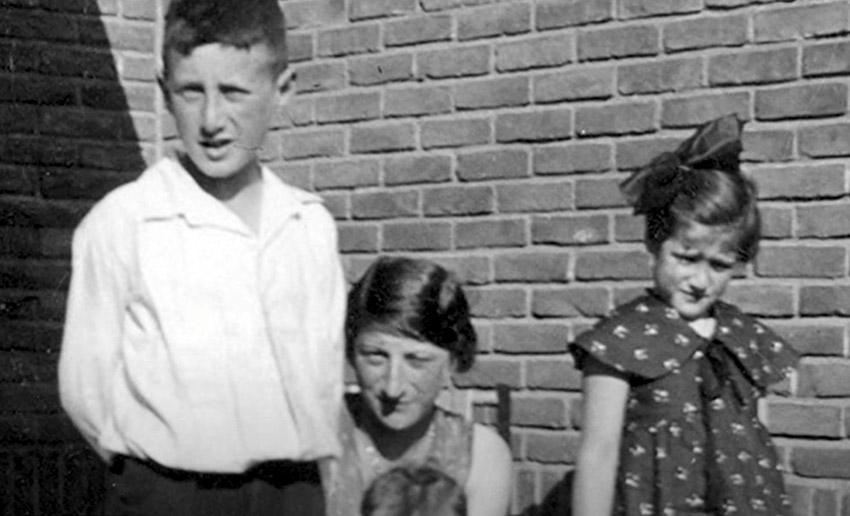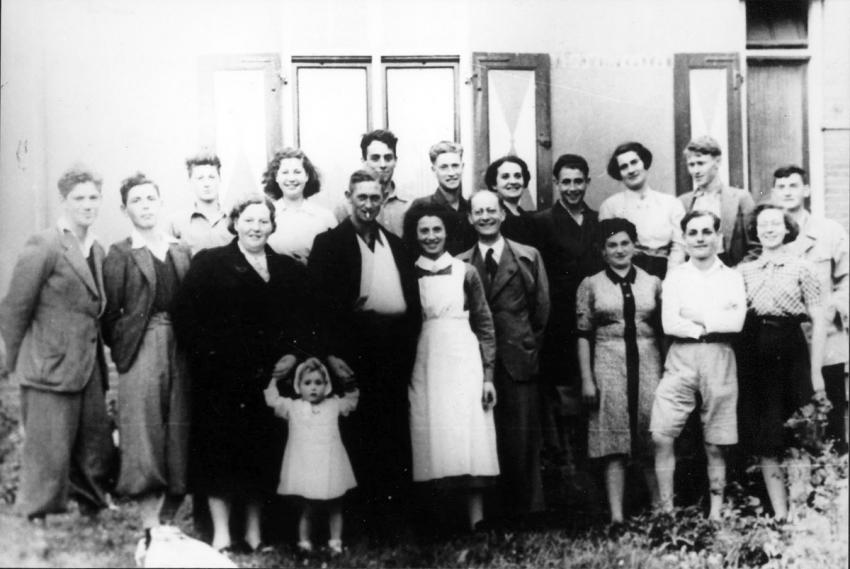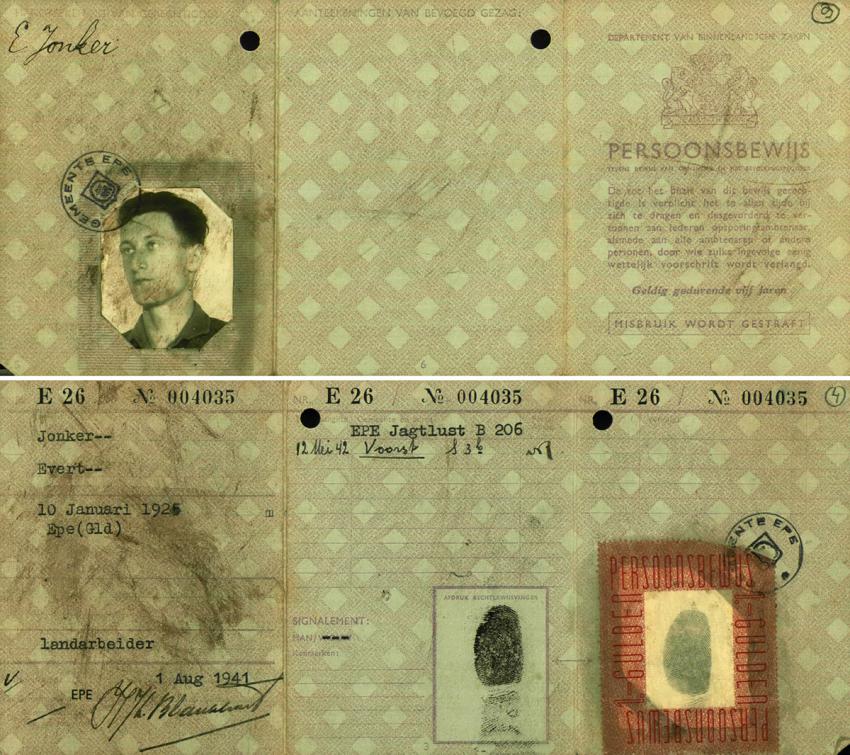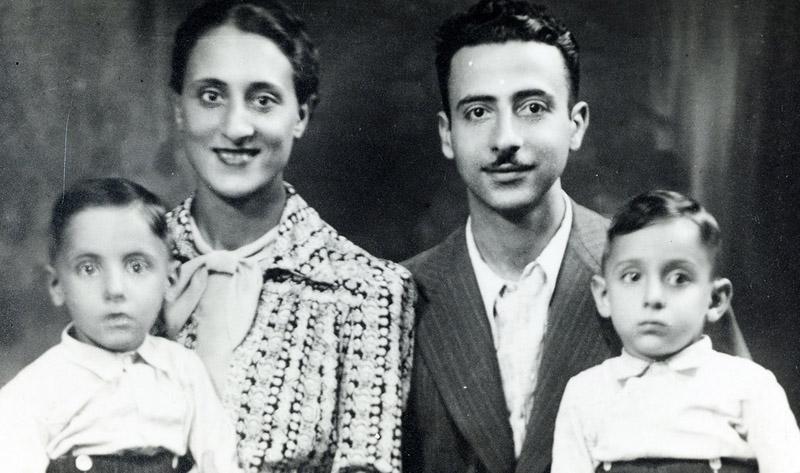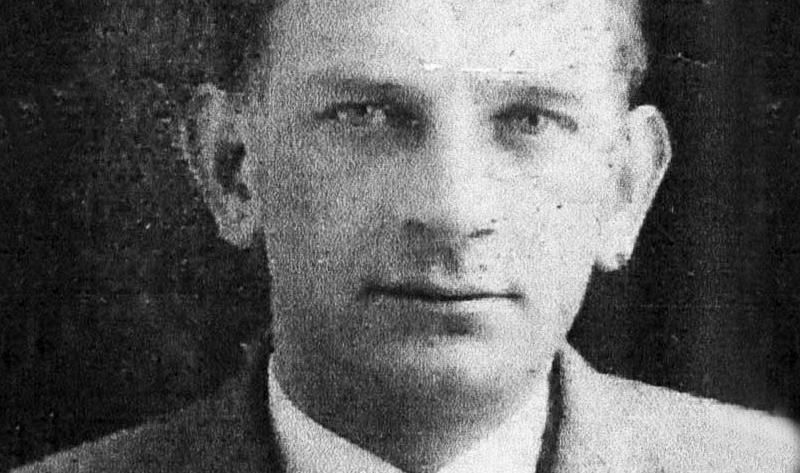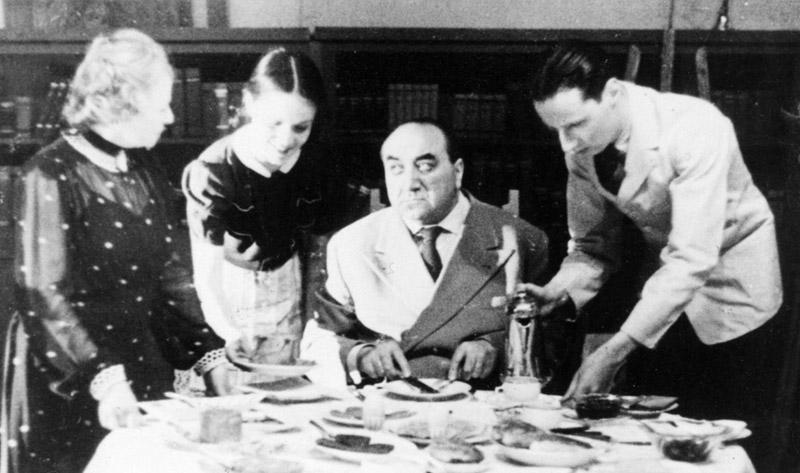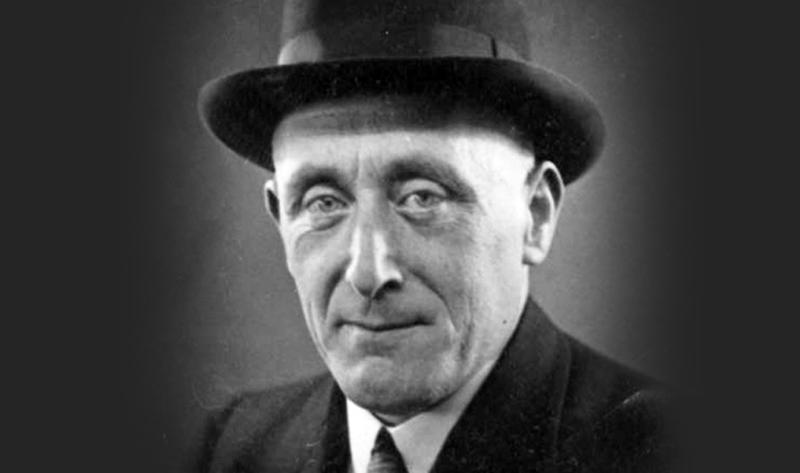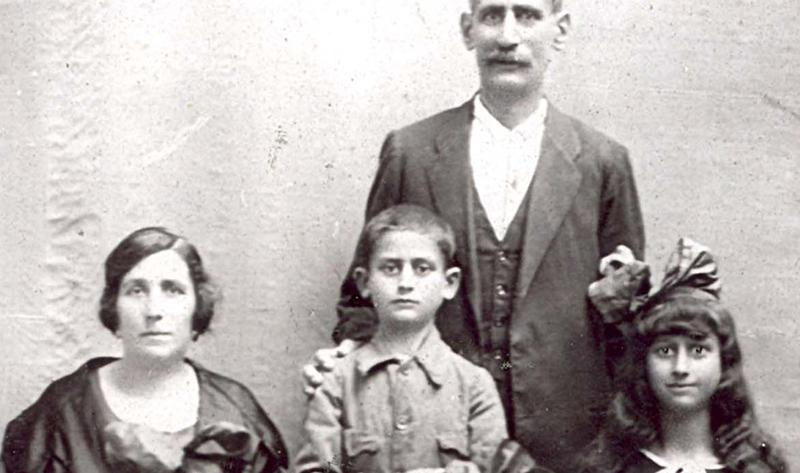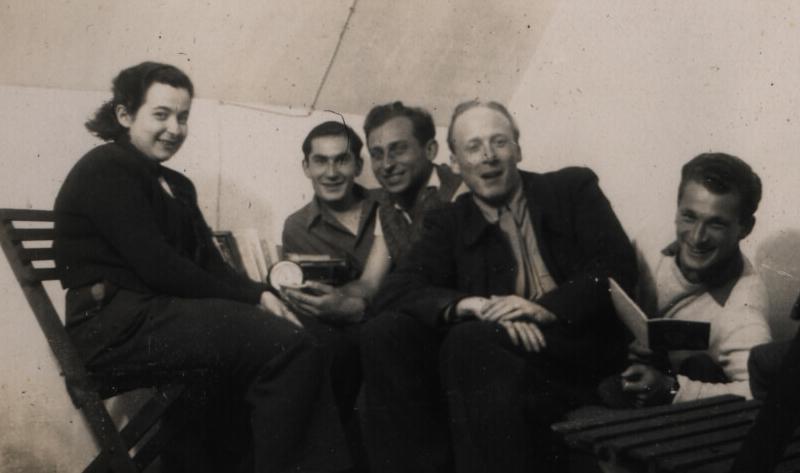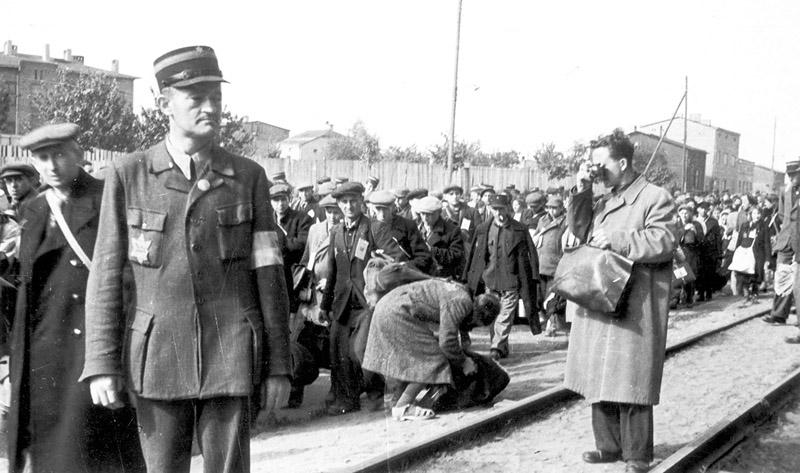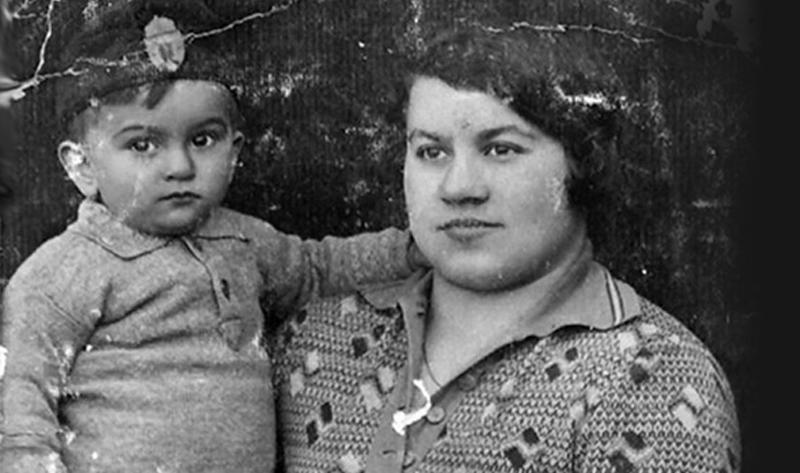The Andriesse Family from the "Star Camp" ("Sternlager") in Bergen-Belsen
10 April 1945: "The Lost Train" from Bergen-Belsen to Tröbitz
Between 6-10 April 1945, days before the liberation of the Bergen-Belsen concentration camp in Germany, three trains were sent from the camp with some 7,000 Jews on board, bound for the Terezin ghetto. The first train was liberated by the Allies. The second train reached Terezin on 21 April, and the third, later known as "The Lost Train", never reached its destination. After a journey of approximately two weeks, the train was stopped on a destroyed bridge on the Elster River, and on 23 April, it was liberated by the Red Army on the outskirts of the German village of Tröbitz. Among the passengers were Betje Andriesse, and her children Bram, Tett and Mirjam.
Herman and Betje Andriesse lived in Utrecht, the Netherlands with their children Joseph-Joop (b. 1924), Bram (b. 1926), Rosette-Tett (b. 1927) and Mirjam (b. 1933). Herman was a travelling salesman for shoe factories, and the family was Zionist in outlook.
When the Germans invaded the Netherlands in May 1940, Joseph joined a Hachsharah (pioneer training farm) and became active in the "Hechalutz" underground. Working in southern Holland, he stole ID cards so that they could be forged. Joseph himself also switched identities from time to time.
In April 1943, the Andriesse family was sent from Utrecht to Amsterdam. Rosette remained in Utrecht and hid with a Dutch Christian family. Concerned for her safety, Herman begged her to leave her hiding place and join them in Amsterdam. In June 1943, trucks arrived at the street in Amsterdam where they were living. Herman, Betje, Bram and Mirjam were all caught and taken to the Westerbork transit camp. Rosette stayed in hiding. Later on, she was given away and also taken to Westerbork. Herman obtained a "Certificate" – an entry permit for his family into Eretz Israel (Mandatory Palestine), and thanks to this document, the Andriesse family was transferred to the Bergen-Belsen concentration camp on 1 February 1944. They stayed in the "Dutch Camp" ("Star Camp") there, together with other inmates who had foreign citizenship or permits, and were slated to be handed over to the Allies in exchange for German POWs.
Mirjam (Andriesse) Lapid, who was 11 at the time, recalls her time in Bergen-Belsen:
We arrived at the Dutch camp within Bergen-Belsen… I was together with my mother, my brother and sister. My father was in the men's barracks. We would see each other. The grown-ups worked. Some adults tried to teach us and keep us occupied… and the youngsters organized "oneg shabbat" activities for us on shabbat afternoon… Most of the time, the children were neglected… We marked the holidays and observed shabbat. They tried to preserve a modicum of normal life… Towards the end, we saw that they were bringing masses of prisoners from other camps… My memories of hunger and cold are from there [Bergen-Belsen].
Throughout this period, Joseph continued to be active in the Dutch underground.
In 1944, Joseph married his girlfriend Sophie Hes, in a Jewish wedding ceremony. The wedding guests were members of the underground, who stole into the conference room of the closed synagogue in Utrecht, where the ceremony took place. Until that point, Sophie had been living under an assumed identity in Arnhem. Two days later, the couple left for France. They planned to reach Spain, and from there to travel to Eretz Israel. They arrived in Paris in April 1944 and continued to Toulouse. As part of his resistance work, Joseph was sent to the Swiss border to find escape routes for Jews, and was caught. Suspecting that he was a spy, the Germans were about to execute him, when Joseph confessed to being a Dutch Jew and gave them his real name. He was imprisoned, and later sent from France to camps in Germany, eventually reaching Dachau. Sophie left Toulouse with a group that crossed the border via the Pyrenees and reached Spain. She knew that Joseph had been caught by the Gestapo, but all communication between them had been severed.
In February 1945, Herman Andriesse died in Bergen-Belsen, succumbing to starvation and exhaustion. In early April, Betje contracted typhus, and ran a high fever. On 10 April, Betje and her three children were put on a deportation train from Bergen-Belsen to the Terezin ghetto – a train later known as "The Lost Train". Weak and sick, Betje was laid down on a bench inside the train. Mirjam relates:
There were a few elderly German guards on the train. From time to time, we stopped in a forest and those who were still able were allowed to go down, and to try and obtain food. That was my brother's job… He would return with a loaf of bread or something else. The German guards didn't give us any food. They didn't give us anything. We heard the Allied bombardments all the time… Every evening we would remove the dead from the train and bury them beside the railway tracks.
For two interminable weeks, the train zigzagged between bombed tracks and destroyed bridges, and on 23 April, it was liberated by the Red Army on the outskirts of the German village of Tröbitz. Survivors of the journey were given lodging in the village. Recalling her stay in Tröbitz, Mirjam relates:
The village was empty. I don't know what they did with the Germans from the village. We lived there on the main street. Some of the Russians stayed with us. They treated us very well…. We went into a little house, where the basement was full of food… That's where we stayed… Typhus broke out, and the Russians tried to stamp out the epidemic… not very successfully. Amongst the Russians was a Jewish doctor who was very kind to us. We also became sick… Many people died in Tröbitz.
In late June 1945, the survivors were brought by trucks from Tröbitz to Leipzig, and from there back to the Netherlands.
Joseph survived, and returned to the Netherlands from Dachau. He succeeded in locating his mother, sisters and brother on the survivors' lists, and travelled to Utrecht to be reunited with them. Sophie was informed that Joseph had survived, and she too returned to the Netherlands. In April 1946, Sophie immigrated to Eretz Israel, and Joseph followed in November. The same year, Joseph's younger brother Bram also immigrated. In 1956, Joseph's sister Mirjam immigrated to Israel. His mother and sister Rosette remained in the Netherlands. In Israel, Joseph and Sophie changed their family name to Bar-Asher, and Sophie became Zipporah.
The victims of "The Lost Train" are memorialized in the Memorial Cave at Yad Vashem, and their names are engraved on a memorial wall in Tröbitz.
In 2018, Mirjam (Andriesse) Lapid was one of the torchlighters at the State Opening Ceremony of Holocaust Martyrs' and Heroes Remembrance Day at Yad Vashem.

